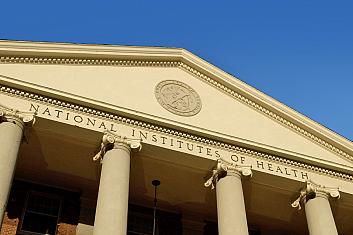
In a rare show of bipartisanship, members of a key House appropriations panel expressed opposition to the Trump administration’s proposed budget cuts for the National Institutes of Health, the main funding source for medical research in the United States.
U.S. Rep. Tom Cole (R-OK), the chairman of the House Appropriations Subcommittee on Labor, Health and Human Services, Education, and Related Agencies, said during a hearing Wednesday the proposed cuts would stall progress on critical advances in the fight against infectious diseases and other key research.
Cole joined Democrats’ opposition to the budget cuts and said he is “very proud” Congress overrode the Trump administration’s proposal to cut funding for NIH in this year’s budget, and increased the budget by $2 billion for fiscal 2017. “Investment in NIH has been a key driver in making America the leader in biomedical research around the world,” he stated.
The Republican’s remarks were echoed by Democrats on the appropriations panel, who derided the president’s proposal for additional budget cuts of $5.8 billion for FY 2018 and the elimination of funding for the Fogarty International Center, the NIH affiliate that helps finance overseas medical research into treatment of infectious diseases like AIDs, Ebola and Zika.
“The (Trump) budget would inflict immeasurable harm to one of the jewels of our medical research,” said U.S. Rep. Rosa DeLauro (D-CT).
U.S. Rep. Nita Lowey (D-NY) said the proposed cuts “will result in more deaths and suffering” and represented a “slap in the face to the scientific community.”
Under the Trump administration proposal, funding for NIH would be cut to $25.9 billion for FY 2018, a decrease of 18 percent, by eliminating overhead payments to universities and research institutes. That could eliminate more than 5,000 research grants funded through NIH.
Cole said earlier the committee and he will be “very hesitant” to go along with the proposed cuts.
Several panel members noted how the Fogarty Center was named for John Fogarty, a 27-year member of Congress and a member of the appropriations committee for 20 of those years, during which he expanded NIH funding 35-fold.
A panel of top executives from NIH, including Dr. Francis Collins, director of the institute, appeared before the subcommittee to discuss the agency’s work and oncoming projects, though the executives were reluctant to speak publicly against the Trump administration’s spending proposal.
Joining Collins were: Dr. Anthony Fauci, director of NIH’s National Institute of Allergy and Infectious Diseases; Dr. Gary Gibbons, director of NIH’s National Heart, Lung and Blood Institute; Dr. Joshua Gordon, director of NIH’s National Institute of Mental Health; Dr. Doug Lowy, acting director of NIH’s National Cancer Institute; and Dr. Nora Volkow, director of NIH’s National Institute of Drug Abuse.
Collins said NIH has gone a dozen years without a significant increase in its budget. “We would like to be able to count on a stable, predictable scale of funds,” he stated, as he described some of the research NIH is conducting on genetic diseases.
He asserted the country faces an onslaught of costs associated with the rapid growth in cases of Alzheimer’s disease, diabetes and other health risks and said NIH research has helped cut deaths caused by cancer by 1 percent a year, equating to cost savings of $500 billion annually.
Fauci described some of the work the National Institute of Allergy and Infectious Diseases is engaged in, including research into a vaccine for the Zika and Ebola viruses, which he said is conducted in collaboration with foreign scientists trained at the Fogarty Center. The center, he said, is now engaged in Phase Two trials of a Zika vaccine in South America and Africa, the results of which will have an impact in the United States.
Collins addressed the Trump administration’s calls for the shifting of a greater burden for funding such work to the private sector, insisting that U.S. government funding, coupled with work from industry sources, academia and philanthropic foundations, is critical to the development of new cures for diseases. Without it, said Collins, the United States is at risk of “losing our lead to China.”
But Collins expressed optimism that budget-cutting zeal expressed by the Trump administration will moderate in the future, with respect to NIH. “I’m hopeful that this period, which occurs during the beginning of every administration, will begin to settle out,” he told the panel.
The NIH executives also described other work being conducted by the institute, including a universal influenza vaccine; a universal mosquito vaccine that would protect humans against Zika, dengue fever, malaria and other mosquito-borne diseases; NIH research into suicide prevention, the use of marijuana as a medical treatment, and opioid abuse.




